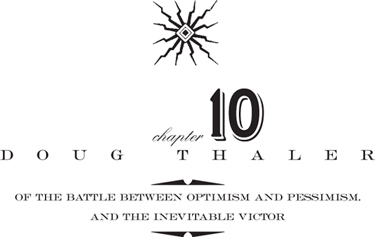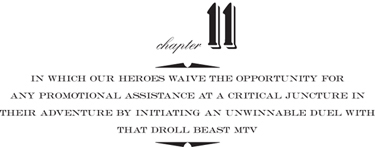The Dirt (50 page)
Authors: Tommy Lee
Alexis couldn’t promise anything, because the girl was an actress from Palm Beach. But soon after, she came to town and was staying at the Playboy Mansion. She called me, introduced herself as Heidi Mark, and said she could go out with me that night but had to be back early for a 7
A.M.
photo shoot. I picked her up at the Playboy Mansion and took her to a friend’s birthday party. I was amazed when Heidi wasn’t disgusted watching us toss hundred-dollar bills at strippers like confetti. She was a tomboy trapped in the shell of a Barbie doll, and she enjoyed the whole spectacle. Afterward, I offered to drive her back to Hef ’s but she said, “I don’t really need to go back there. Ever since Hef ’s been married, the mansion’s been dead.”
“But what about the seven
A.M.
photo shoot?” I asked.
“I sort of made that up in case I didn’t like you.” She smiled.
We went to my house, and she stayed there for a week, until she had to leave for Orlando to tape a show called
Thunder in Paradise
.
Our second date was in the Bahamas. Michael Peters, who owns the Pure Platinum chain of strip clubs, had become a good buddy of mine. Back when we were recording the single “Girls, Girls, Girls,” I had played it for him in his Lamborghini, and he promised on the spot that the song would be played every hour on the hour in every club he owned—and he has kept that promise to this day. After my week in L.A. with Heidi, Michael and I flew fifteen girls—each smuggling baggies of coke in whatever orifice they could hide them—in two Lear jets to a place called Hurricane Hole, where he had a ninety-foot yacht anchored and a film crew hired to document it all. On day three, I was cruising across the bay in a waverunner with a topless blond on the back when I happened to glance toward the beach. Sitting there on top of a pile of luggage, with her arms folded angrily over her chest, was a girl who looked very familiar. It was Heidi. I had forgotten that she was arriving that day. Instinctively, I jabbed my elbow back and knocked the blond off the back of the waverunner, and then sped to the beach. I thought somehow, when she saw me arrive alone, she’d think the topless blond was a trick the 3
P.M.
sunshine had played on her eyes.
After a few days of hanging out with nude women on Michael’s boat, Heidi decided that if we were to have anything resembling a healthy relationship, we would have to find somewhere to stay on our own. So we moved into a house Michael owned and used it as a love shack until, a few days later, my jet ski hit a coral reef and I flew over the top, cracking two ribs on the hard coral.
Our relationship pretty quickly became one disaster after another: After the Bahamas, Michael took it upon himself to butter up Heidi’s father. So he looked up the address of her father’s office in Palm Beach and sent him a motherlode of paraphernalia from the Doll House, Pure Platinum, and Solid Gold: everything from T-shirts to soft-porn videos of the girls. He’d been in the business for so long, he thought that any red-blooded male would be glad to receive his stripper gifts. Unfortunately, he didn’t know that Heidi’s dad was a divorce lawyer and her grandmother worked as the receptionist in his office. When the old lady opened it, she had a fit. To make matters worse, Michael had enclosed a note with the package that read: “Dear John, Thank you for raising such a great girl. Love, Michael.” So Heidi’s whole family thought she was dating Michael. When they read in the local papers that Michael had gotten arrested for violating the RICO anti-racketeering act in Florida for drugs, money-laundering, and liquor license violations, they practically disowned her. The only good that came out of it was that when they discovered Heidi was dating me, they were actually relieved.
Now that my single life was over, I pulled out of Bar One; my partners went on to start the only strip club to get a license to operate in Beverly Hills, the Beverly Club. Instead, I spent my time with Heidi at a Malibu restaurant called Moonshadows, where Fran Drescher, Gary Busey, and Kelsey Grammer all hung out. Everything began to return to normal, except for my mail: once a week, I’d receive a manila envelope that contained a photograph of me and Heidi lying out by the pool or in bed. I thought we were being stalked by a jealous fan until Heidi told me that her ex-fiancé had been a vice cop and was sending DEA helicopters to spy on us. I interpreted this as a warning and flushed all the cocaine I could find in the house.
My contact at Warner Bros., Michael Ostin, hooked me up with a pair of producers who called themselves the Dust Brothers for my next album. They had made a great album with the Beastie Boys but had not yet struck pay dirt with Beck and Hanson, and it was very frustrating working with them. I would record something with one of them while the other left the room to smoke pot. When we were through, the guy who had left would return and say what we did sucked. Then they’d switch places and we’d go through the same routine again. It was like trying to make an album with Cheech and Chong. They weren’t into songs or production at all. They were computer cut-and-paste guys, so that whatever I finished when I left the studio one night would sound completely different the next morning.
It was a frustrating experience, but, somehow, as if by the magic of the marijuana fairy, we ended up with a pretty cool album. Eight years before Kid Rock and Limp Bizkit, it mixed rap beats with rock guitars. And because no one was making any music like that at the time, Warner Bros. didn’t know what to do with it. As they were deciding, drama struck in the executive suites and a power struggle resulted in massive firings. Suddenly, I was at the label with nobody on my side and a completed record with a release date that kept getting pushed back month after month.
I was ready to hit the road again, but I was stuck in limbo. I had become obsessed with racing since leaving the band, so I plunged myself into that world. I had driven half a season in the Indy Lights, and loved it. The focus, the fans, and the rush were like being onstage at a rock concert. If you made a mistake, everybody saw it. At the Long Beach Grand Prix, a car hit me on the third lap. My car swerved sideways and the wing hit the wall, snapping the bracket that holds it to the chassis. In the pit, the crew took off the wing, which is what keeps the car’s back end from flying off the ground when you drive, and I tried to finish the race without it. I cruised out of the pit, down the straightaway, and, as I hit a kink in the road, flipped into third gear. Instantly, the car spun out of control and slammed into the wall. The crowd roared, and I stumbled out unharmed except for the red flush of humiliation on my face.
The team I was driving for was called P.I.G. racing, and it was mostly made up of cops and former cops. The crew consisted of guys from their S.W.A.T. team, and I had put millions of dollars into my cars and engines and a trailer. One day, one of the officers who ran the team disappeared and I received a notice that he had been arrested for selling coke out of the police evidence locker (which was probably how he funded the team) and gone bankrupt, so everything I had was seized. I never saw my cars again, though I later saw him hanging around the races.
After finishing the album with the Dust Brothers, I began driving in the amateur celebrity races. That April, after celebrating my daughter Skylar’s fourth birthday, I went to Long Beach to drive in the Grand Prix again. I finished in second place, and came off the track exhilarated. That night, there was a party at the hotel where most of the drivers were staying, and I started to celebrate. An hour into the debauchery, a hotel staff member ran up to me. He said I had a phone call in the lobby.
I picked it up, expecting Heidi. I wanted so badly to tell her how well I had raced. But it wasn’t Heidi calling at all. It was my estranged wife, Sharise, and she was crying so hard she could hardly complete a sentence.
“Skylar’s in the hospital.” She struggled between sobs to expel each word. “Her appendix exploded. She wants her daddy.”

fig. 4

Vince Neil with son Neil


T
heatre of Pain
cost less than two hundred thousand dollars to make.
Dr. Feelgood
was six hundred thousand dollars. And both times we got our money’s worth. After a few months, the Corabi album already cost as much as every prior Mötley record combined. But no one could talk to these guys anymore. Even Chuck Shapiro was afraid of them.
So I called a band meeting in Vancouver and passed around some spreadsheets that Chuck had prepared. “You guys have been working on this album for five months, and it’s over a million dollars so far,” I told them. “Here is where the million dollars went, and that doesn’t even count the bills coming in from the last five weeks.”
Nikki took the spreadsheets and threw them at me. “You’re just negative,” he raged. “You’re killing all my creativity by telling me this kind of shit.” And he stormed out of the room. Meeting over.
Fourteen months and two million dollars later, the record was finally finished. The week it came out, it entered the pop charts at number seven. I wiped the sweat off my forehead, thinking that maybe everything was worth it after all and the new band actually did have a shot. The next week, a friend who gets the chart numbers early called me. “You’re not going to believe this,” he said. “Your album dropped from number seven all the way to twenty-eight.”
And that’s when the freak-out began.
